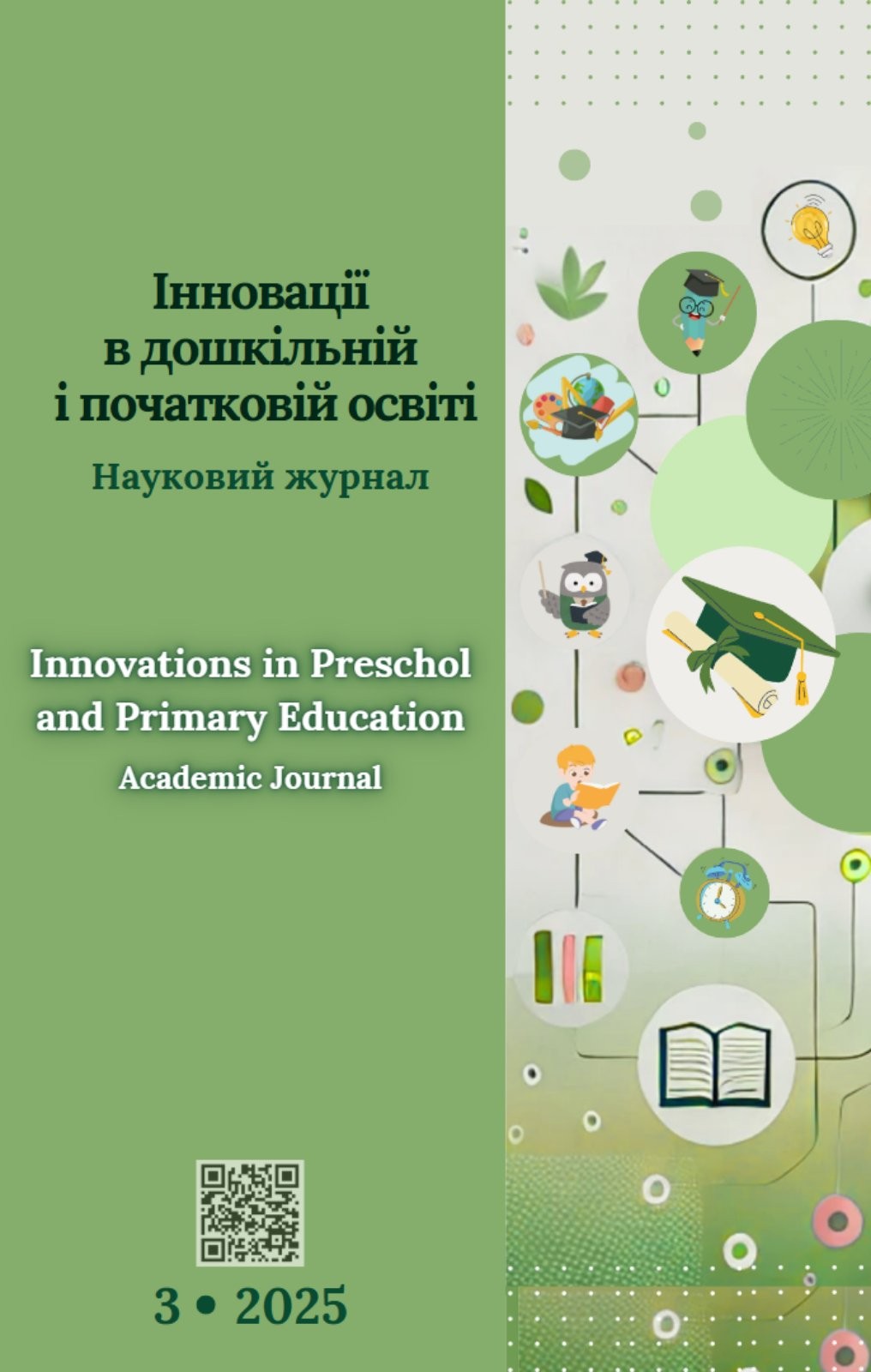Implementation in Poland of inclusive aspects of the program for development of intercultural competences “adventures of the other”
Keywords:
development program, intercultural competences, «Adventures of the Other», Poland, inclusion, primary school childrenAbstract
The article, based on the analysis of scientific and educational and methodological sources, describes the inclusive aspects of the successful implementation of the program for the development of intercultural competencies of primary school children «Adventures of the Other» in Poland. The third stage of the Program is based on the multidirectional use of art therapy elements and provides for an inclusive component. The Program contributes to the formation of an open attitude of primary school children towards themselves, others and the world; prepares them for contacts with representatives of other cultures and those who may be perceived as different from the majority. An intercultural, a psychological-pedagogical fairy tale was chosen as the main didactic means for the implementation of the Program. Each such fairy tale must necessarily be characterized by the problematic nature of the plot, information without morality, realism of events, the formation of acceptance of otherness, constructive and productive empathy. These characteristics of the fairy tale involve the formation in the minds of primary school children of a significant difference between the concepts of «indifference» and «constructive and productive assistance», which is necessary in an inclusive environment. Each fairy tale is accompanied by a psychotherapeutic session within the framework of the Program. The third issue of the Program offers an intercultural, a psychological-pedagogical fairy tale with an inclusive theme, «The Other‟s New Friend». Its content provides for the sequential execution of exercises («Broken Telephone», «Behind the Glass», «Silence», «Pantomime», «You are My Ears», «Rules of Tolerant Communication with People with Hearing Impairments»). Further research is required to develop models and training programs for future teachers, social educators and psychologists who will implement inclusive aspects of the program of socio-psychological support and rehabilitation, the formation of intercultural communication, in particular in the inclusive environment of preschool and primary school children in Poland and Ukraine.References
1. Holubenko, O. V. (2024). Profesiyna kompetentnistʹ maybutnikh uchyteliv v umovakh inklyuzyvnoho navchannya molodshykh shkolyariv: struktura ta suchasni vyklyky [Professional competence of future teachers in the conditions of inclusive education of younger schoolchildren: structure and modern challenges]. Pedagogy and Education. Cambridge, United Kingdom [in Ukrainian].
2. Inklyuzyvne navchannya [Inclusive education]. Ofitsiynyy sayt Ministerstva osvity ta nauky Ukrayiny [in Ukrainian].
3. Kalʹko, I. V. (2017). Formuvannya hendernoyi kulʹtury shkolyariv u systemi roboty suchasnoho zakladu osvity [Formation of gender culture of schoolchildren in the system of work of a modern educational institution: educational and methodological manual]: navchalʹno-metod. posib. Kharkiv: Drukarnya Madryd, [in Ukrainian].
4. Kozlov, N. I. (2020). Zhalistʹ i hotovnistʹ pozhality – tse dobre? [Pity and willingness to pity – is it good?]. Psykholohis: entsyklopediya praktychnoyi psykholohiyi [in Ukrainian].
5. Smailova, T. (2019). Formuvannya mulʹtykulʹturnoyi kompetentnosti uchniv pochatkovoyi shkoly [Formation of multicultural competence of primary school students]. Zbirnyk Zhytomyrsʹkoho natsionalʹnoho universytetu imeni Ivana Franka, 2, 120-124. [in Ukrainian].
6. Tokareva, N. M. (2021). Labirynty doroslishannya: psykhichnyy rozvytok osobystosti pidlitkovo-yunatsʹkoho viku [Labyrinths of growing up: mental development of the adolescent personality]: monohrafiya. Kryvyy Rih: TOV «NVP «Interservis»» [in Ukrainian].
7. Yarmysh, Yu. F. (2011). Kazka [Fairy Tale]. Entsyklopediya Suchasnoyi Ukrayiny. Retrieved from: https://esu.com.ua/article-12229 [in Ukrainian].
8. Hall, E. (1990). Understanding Cultural Differences, Germans, French and Americans. Yarmouth: Intercultural Press.
9. Hofstede, G. (2014). Dimensionalizing Cultures: The Hofstede Model in Context. Readings in Psychology and Culture, 2 (1). Retrieved from: https://doi.org/10.9707/2307-0919.1014.
10. Młynarczuk-Sokołowska, A. (2022). Intercultural non-formal education: what the children think. Intercultural Education, 33(1), 82-98.
11. Młynarczuk-Sokołowska, A. (2015). Od Obcości do Inności. Międzykulturowa edukacja nieformalna na przykładzie działalności polskich organizacji pozarządowych. Wydawnictwo Akademickie Żak.
12. Nikitorowicz, J. (2024). Zadania edukacji międzykulturowej w kontekście wojny w Ukrainie. Edukacja międzykulturowa, 1(24), 7-29.
13. Osadchenko, I. I. (2024). Scenariusz zajęć wzmacniających. W A. Młynarczuk-Sokołowska & K. Szostak-Król (Red.), Przygody Innego. Bajki międzykulturowe z elementami arteterapii w procesie rozwijania kompetencji międzykulturowych dzieci (s. 146-149, 165-168, 184-186, 201-203, 218-222, 234-237, 254-257). Instytut Badań Edukacyjnych (IBE) – Ministerstwo Edukacji Narodowej (MEN) – UNICEF. Warszawa.
14. Przygody, I. (2024). Bajki międzykulturowe z elementami arteterapii w procesie rozwijania kompetencji międzykulturowych dzieci. W A. Młynarczuk-Sokołowska & K. Szostak-Król (red.), Instytut Badań Edukacyjnych (s. 268). Warszawa.
15. Wasyluk, A., & Kit, H. O. (2021). Współczesnych technologiach nauczania inkluzyjnego. Pedagogika Społeczna, 1-2, 273-283.

